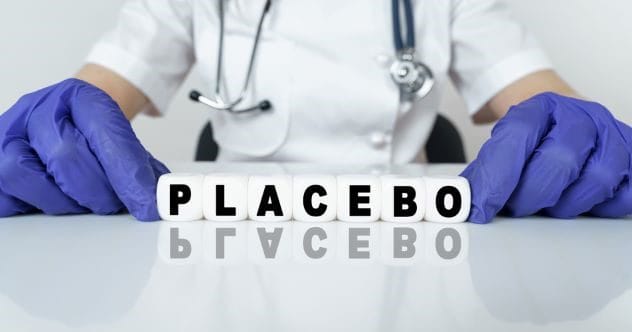Your brain is a powerful part of your body that significantly impacts your mental and physical state. It helps you understand complex ideas, and it can also influence your taste buds, muscles, and even your blood pressure. The placebo effect, where a person experiences a beneficial outcome simply from their anticipation of it, demonstrates just how powerful the brain can be.
In this list, we’ll explore ten fascinating examples of the placebo effect. This mind-blowing phenomenon has been observed since the 1600s, and its mysterious impact continues to intrigue scientists. Get ready to be amazed by how your brain can be tricked!
10. Elegant Water or Tap Water
A trendy California restaurant once featured a unique menu. Instead of a wine list, they offered gourmet water brands, priced between four and eight dollars. One such water was L’eau Du Robinet, supposedly a French water with potent natural minerals. Its aggressive flavor was said to perfectly complement meat and poultry. The catch? L’eau Du Robinet translates to tap water in French!
Featured on Penn and Teller’s show BS, customers raved about these luxury waters, unaware that each brand came from the restaurant’s garden hose. They described the water as more flavorful and cleaner than regular tap water. This example shows how easily our brains can be tricked, making us believe that simple tap water is a gourmet experience. Perhaps it’s worth reconsidering splurging on expensive bottled water!
9. Exercising Without Exercise

If the idea of going to the gym doesn’t appeal to you, this example might offer some hope. Scientists from Harvard’s Department of Psychology divided a group of hotel maids into two groups. One group was informed that their daily tasks qualified as exercise, while the other group received no such information.
The results were surprising. After just one month, the maids who were told they were exercising showed a decrease in systolic blood pressure, weight, body mass index, and waist-to-hip ratio. Their blood pressure dropped by an average of 10%. While this doesn’t mean you can lose weight by simply believing pizza will make you thinner, it demonstrates the powerful connection between our minds and physical fitness.
8. Surgery Pain, But Without an Operation
This example might shock you if you’ve ever struggled with muscle or joint pain. A study in the New England Journal of Medicine involved 180 patients with knee osteoarthritis. Patients were divided into three groups: surgery, cleaning, or a placebo procedure.
In the placebo procedure, surgeons made three small incisions and splashed saline to mimic the sounds of cleaning, but no actual surgery was performed. The results were remarkable. The placebo group experienced significantly lower pain levels than the surgery group. Even more astonishing, the placebo group maintained these benefits for up to two years!
This study highlights the potential of placebos to relieve physical pain without the need for expensive surgical procedures. The placebo procedure, costing significantly less than the $5,000 operation, produced the same or even better results.
7. Placebos: Better Than the Real Treatment
If our brains can relieve pain, could they potentially outperform painkillers? A study by Ted Kaptchuk, reported by NPR, explored this possibility with patients suffering from lower back pain. One group received a placebo, while the other received real treatment.
Interestingly, the placebo group was informed they were receiving an inactive placebo treatment. Despite this knowledge, the placebo group reported a 30% decrease in pain levels, compared to only 9% in the non-placebo group. Additionally, the placebo group experienced a 29% reduction in difficulty performing daily activities, while the control group saw no change. This suggests that placebos can be powerful tools, even when people know they are taking them.
6. Placebos: Thomas Jefferson Approved
Figuring out exactly when the placebo effect was first used is challenging, but there’s an interesting clue from one of America’s Founding Fathers, Thomas Jefferson. In 1807, Jefferson wrote to Dr. Caspar Wistar about a successful physician. He stated, “One of the most successful physicians I have ever known has assured me that he used more bread pills, drops of colored water, and powders of hickory ashes than of all other medicines put together.”
This historical anecdote highlights the long-standing use of placebos in treatments and underscores the enduring power of the placebo effect throughout history.
5. Overdosed on Placebo
The placebo effect can have unintended consequences, as demonstrated by a case reported in Smithsonian Magazine in 2012. A man participating in a study for a new antidepressant swallowed all 26 of his prescribed pills in a suicide attempt.
He experienced severe symptoms: difficulty breathing, dangerously low blood pressure, and near-death. Doctors were baffled until they discovered the man had overdosed on placebos. The sugar pills had improved his mood, convincing him he had taken real medication. However, when he learned he had only taken sugar pills, he immediately recovered. This startling story illustrates how the brain can significantly impact our physical state, for better or worse.
4. Got Back Pain?
Our brains can be unpredictable, and the way information is presented can influence our vulnerability to harmful placebo effects. A study at Georg August University assigned participants with back pain to a leg flexion test. Half were told they might experience increased pain, even though this wasn’t true.
The group given the false information reported twice the pain levels after the test and performed fewer leg flexions compared to the group that received neutral information. This highlights the importance of being cautious about instigating negative responses to placebos while still acknowledging their positive potential.
3. Honesty Is Effective!
While placebos are often administered without informing patients, some studies have shown that openness can be equally effective. A 2018 study by the Dana-Farber Cancer Institute involved cancer survivors experiencing cancer-related fatigue. Participants were divided into groups, with one group receiving a placebo and being explicitly told it was a placebo, and another group receiving nothing.
Eric Zhou, Ph.D. of Dana-Farber, noted that the placebo group reported significantly improved cancer-related fatigue, while the control group’s fatigue remained constant. This shows the brain’s capacity to alter how we experience physical pain and ailments, demonstrating the powerful benefits our brains can provide, even with full knowledge of the placebo.
2. Drunk on Placebo
Your brain can trick you into feeling a variety of sensations, including the feeling of being drunk. In a 2003 study by Seema L. Assefi and Maryanne Gary, subjects were given plain tonic water. Half were told it was a vodka tonic, while the other half knew it was just tonic water.
After drinking, participants took a memory test. Those who believed they were drinking a vodka tonic displayed increased confidence and were more easily misled by incorrect information, mirroring the effects of alcohol consumption. This experiment shows that even the mere belief of consuming alcohol can cause the brain to simulate the feelings of being drunk, further highlighting the power of the placebo effect.
1. The Placebo Effect in Nature
Poison ivy is notorious for its irritating and itchy effects. A similar plant is the Japanese lacquer tree, containing the same irritants. A Japanese medical study in 1962 involved 13 students sensitive to Japanese lacquer tree leaves.
Each student was exposed to a Japanese lacquer tree leaf on one arm and a harmless leaf on the other. However, they were told the Japanese lacquer tree leaf was harmless and the harmless leaf was poisonous.
Remarkably, all 13 students developed a rash from the harmless leaf they believed was poisonous, while only two developed a rash from the Japanese lacquer tree leaf, despite their hypersensitivity. This demonstrates that our brains can even negate allergies and sensitivities, showcasing just how mind-blowing the placebo effect can be!
The power of the placebo effect is truly astonishing. From altering our perception of taste to influencing our physical reactions, the brain’s ability to shape our experiences is something that continues to fascinate scientists and challenge our understanding of the mind-body connection.
What do you think about these examples? Let us know in the comments below!










